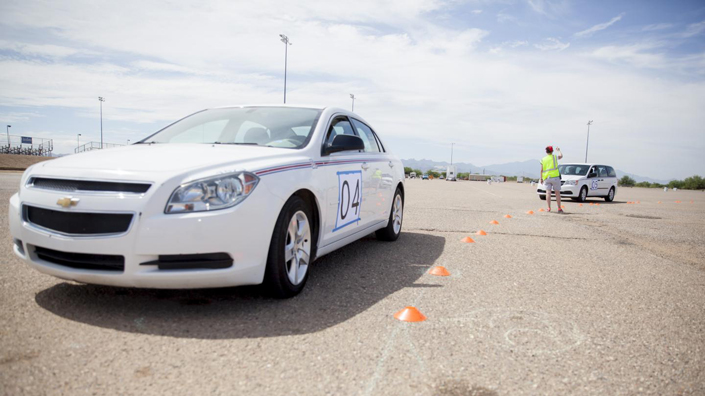Engineering news
Speaking to Professional Engineering, David Bizley said existing traffic management problems and issues with the rapidly-developing technology meant the wait for viable, fully-autonomous vehicles will be longer than many people expect.
“If you think about the cycle with which the vehicle park turns over, I think it’ll probably be 2050 before a majority of cars on the roads are autonomous,” he said. “You may even find it takes that long for a majority of new vehicles leaving the showroom to become autonomous.”
In most self-driving trials so far, and semi-autonomous commercial roll-outs such as the Tesla S model, human drivers have been on standby behind steering wheels to take control when necessary. Bizley said he thinks it will be unlikely that such control-sharing examples will become common, with too much potential for humans to become dangerously distracted. He said car manufacturers will need to move to models with no human control, similar to prototypes in Google's Waymo project, for the technology to become truly widespread.
His comments come after new research in Tucson, Arizona, found only 5 % of vehicles on the road would need to become autonomous to eliminate “stop-and-go” traffic, along with the accident risk and fuel inefficiency it causes. During field experiments a single autonomous vehicle circled a track with at least 20 human-driven cars. Under normal circumstances, human reactions and decisions lead to traffic bunching up, even in the absence of bottlenecks, lane changes, and other disruption.

Cars drive around the track during the experiment in Tucson, Arizona (Credit: John de Dios)
The researchers found they could smooth the traffic flow for all the cars by controlling the pace of the autonomous vehicle, stopping traffic from bunching up and reducing fuel consumption by up to 40 %. They claimed self-driving cars could replace the need for variable speed limits, something which Bizley agreed with for motorway traffic.
However, he said the findings would “unravel” in city environments with complex junctions and lanes or if the number of vehicles increased significantly. “I think it’s probably confined to the relatively narrow situation of the freeway or motorway where the traffic is flowing reasonably freely. I don’t disagree with their figures on that but I think in other situations, particularly in urban situations, the percentage [of autonomous cars] will have to be much higher before you deliver some of these benefits.”
"Regulation needed"
Speaking to PE, Nigel Parkes, managing director of distribution company Pallet-Track, said legislation is also a major barrier to both driverless cars and lorries taking to UK roads. “We need to see far more understanding from government,” he said. “I think it is a classic example here, just like the Internet was, where technology ran away and the legislators were well behind.”
Driverless vehicles will change "everything", said Stuart Young, partner at law firm Gowling WLG, forcing the UK Government to survey regulation and identify all potential issues. "That challenge is magnified by the rapid development of technology, the need for international harmonisation and by some commercial participants adopting an aggressive approach to introducing the technology ahead of regulation,” he said.
The Government has adopted a “near-to-market” approach to regulation, he claimed, only forming a regulatory response as technology emerges. “While that is surely a prudent use of taxpayer money, I worry that it leaves government following the agenda rather than setting it,” he added.
Despite the experts’ concern about a lack of regulation, the Government has provided £8.6 million in funding for a self-driving fleet to be trialled in London and Oxford next year. The project, from groups such as Oxbotica and insurers XL Catlin, will culminate with a full journey from the capital to Oxford.